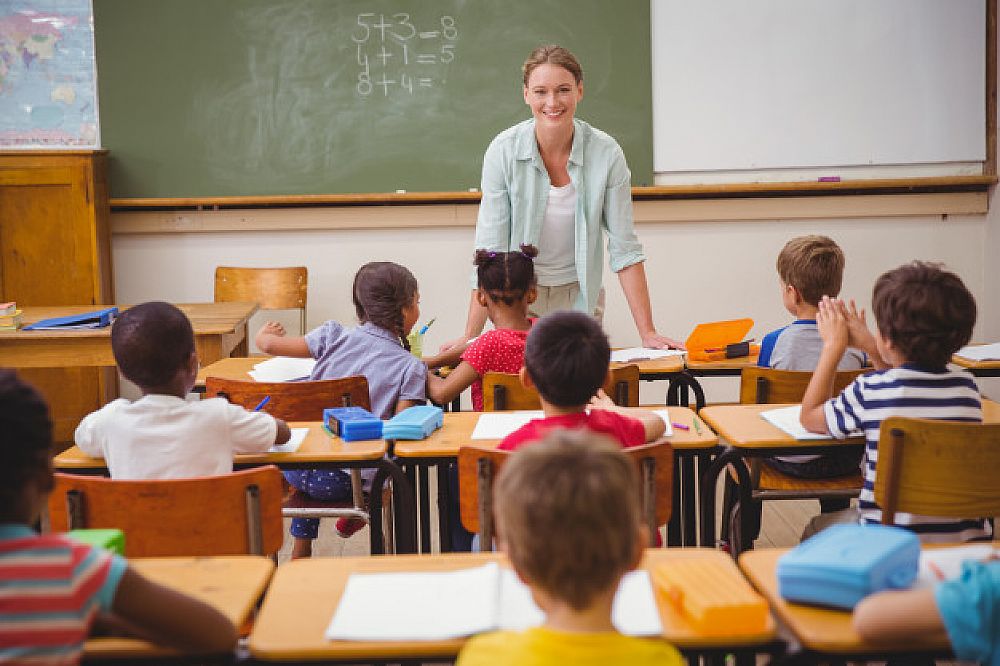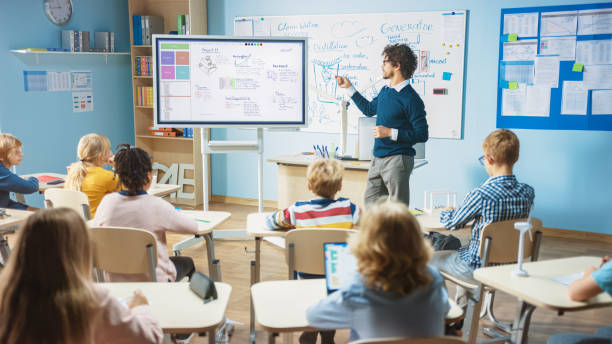Get Top Results with Primary Science Tuition Singapore from Experienced Tutors
Get Top Results with Primary Science Tuition Singapore from Experienced Tutors
Blog Article
Exploring the Various Mentor Strategies in Key Scientific Research Education And Learning Today
The landscape of main scientific research education and learning is progressing, with numerous mentor techniques getting importance in contemporary classrooms. Inquiry-based knowing, hands-on experiments, and the integration of technology are redefining exactly how teachers engage young minds. Additionally, joint strategies and separated direction are being employed to deal with the diverse needs of pupils, improving both interaction and understanding. As we take a look at these methodologies, inquiries emerge regarding their performance and the implications for future educational practices. What might these changes in approach mean for the future generation of learners?
Inquiry-Based Knowing
Inquiry-Based Discovering (IBL) is a pedagogical strategy that motivates pupils to explore clinical concepts with wondering about, investigation, and hands-on testing. This method highlights the duty of students as energetic individuals in their learning, promoting important reasoning and analytic abilities. By involving with real-world inquiries, pupils come to be curious and inspired, which boosts their understanding of clinical concepts.
In IBL, instructors function as facilitators, leading students as they navigate their queries as opposed to delivering information straight. This student-centered strategy permits differentiation, fitting numerous learning rates and designs. Trainees create abilities in creating theories, developing experiments, and analyzing data, which are critical for clinical literacy.
Furthermore, IBL promotes partnership amongst students, motivating them to share findings and concepts. This cumulative query promotes social skills and a feeling of neighborhood within the classroom. Furthermore, the process of query encourages resilience, as trainees find out to welcome failing as a tipping rock toward understanding.
Hands-On Experiments
Hands-on experiments are an important part of reliable science education, enhancing the principles of inquiry-based learning. These experiments permit trainees to engage directly with scientific principles, promoting a deeper understanding via experiential learning. By adjusting materials and observing outcomes, young learners can understand abstract concepts in concrete means.
Such activities advertise critical reasoning and problem-solving abilities, as trainees assume end results, conduct experiments, and examine outcomes. This process urges them to ask concerns, improve their understanding, and create a clinical attitude. Moreover, hands-on experiments can be customized to diverse understanding designs, making certain that all trainees have the chance to engage meaningfully with the material.
Additionally, hands-on experiments usually motivate collaboration amongst peers, advertising synergy and communication skills. Functioning in teams enables students to share ideas, go over searchings for, and pick up from each other, which enhances their total educational experience.
Integrating hands-on experiments right into the key science curriculum not only enhances the learning atmosphere yet additionally grows a lifelong passion in scientific research. By proactively getting involved in their education and learning, trainees are a lot more likely to establish an interest for scientific query that prolongs beyond the class.

Innovation Combination
Integrating innovation into primary science education and learning has actually come to be significantly important in cultivating student engagement and boosting finding out end results. Using digital devices, such as interactive simulations, online laboratories, and academic software application, supplies trainees with possibilities to check out clinical principles in ingenious methods. These resources help with a much deeper understanding of intricate subjects by enabling learners to visualize and adjust variables that would certainly be not practical in a traditional class setting.
Additionally, modern technology combination encourages individualized finding out experiences. Pupils can advance at their own pace, taking another look at tough principles through multimedia resources, which provide to various discovering styles. This flexibility not only supports private development however additionally grows a feeling of freedom in learners.
Furthermore, technology acts as a bridge to real-world scientific research, linking pupils with present study and expert payments. Access to clinical journals and online data sources widens students' viewpoints on scientific questions and fosters essential thinking abilities.
Collaborative Learning
Collective understanding plays an important function in key science education by promoting team effort and communication skills amongst pupils. This technique encourages students to work together, share knowledge, and participate in problem-solving, which boosts their understanding of scientific get more ideas. By participating in group tasks, trainees discover to express their concepts, pay attention to varied click this link perspectives, and discuss services, every one of which are necessary skills in both real-world and academic contexts.

Study suggests that collaborative understanding can cause increased inspiration and engagement in scientific research subjects, as trainees locate pleasure in common experiences (primary science tuition Singapore). Furthermore, this strategy prepares students for future collective endeavors, furnishing them with the skills required for reliable teamwork in greater education and expert settings. Ultimately, welcoming collaborative discovering in primary science education and learning can considerably improve the discovering experience and advertise a much deeper understanding of scientific inquiry
Differentiated Direction

Distinguished direction can materialize in different methods, such as varying the material, processes, or products of discovering. Educators might utilize tiered tasks that supply differing degrees of intricacy, enabling trainees to work at their corresponding preparedness degrees. Furthermore, versatile grouping strategies can facilitate collaboration amongst pupils with different abilities, cultivating peer understanding.
Analysis plays a critical duty in this technique, as it notifies guideline and aids teachers understand each pupil's special needs. Formative analyses, such as tests great post to read and observations, can lead educators in adjusting their approaches to improve learning results. primary science tuition Singapore. Eventually, by implementing set apart direction in primary science education and learning, teachers can grow a more fair and reliable understanding atmosphere, empowering all students to reach their full capacity in understanding clinical sensations
Conclusion
In recap, the diverse mentor strategies in primary science education and learning, including inquiry-based understanding, hands-on experiments, innovation assimilation, collaborative understanding, and distinguished instruction, collectively add to a much more effective understanding atmosphere. These techniques advertise crucial thinking, analytic skills, and a deeper comprehension of scientific principles. By executing these approaches, teachers can produce appealing and encouraging classrooms that resolve the varied requirements of students, eventually promoting a long-lasting passion in science and boosting academic achievement.
Inquiry-Based Discovering (IBL) is a pedagogical method that motivates pupils to explore clinical principles via wondering about, examination, and hands-on experimentation.Collaborative learning plays a vital role in primary science education by promoting teamwork and communication abilities amongst pupils.Research shows that collective knowing can lead to boosted inspiration and interaction in science topics, as trainees find enjoyment in shared experiences.In cultivating an inclusive knowing environment, differentiated guideline arises as a crucial technique to accommodate the varied requirements and abilities of pupils in main science education and learning. Inevitably, by applying set apart direction in primary scientific research education, teachers can cultivate a more fair and efficient understanding setting, empowering all pupils to reach their full capacity in understanding scientific sensations.
Report this page